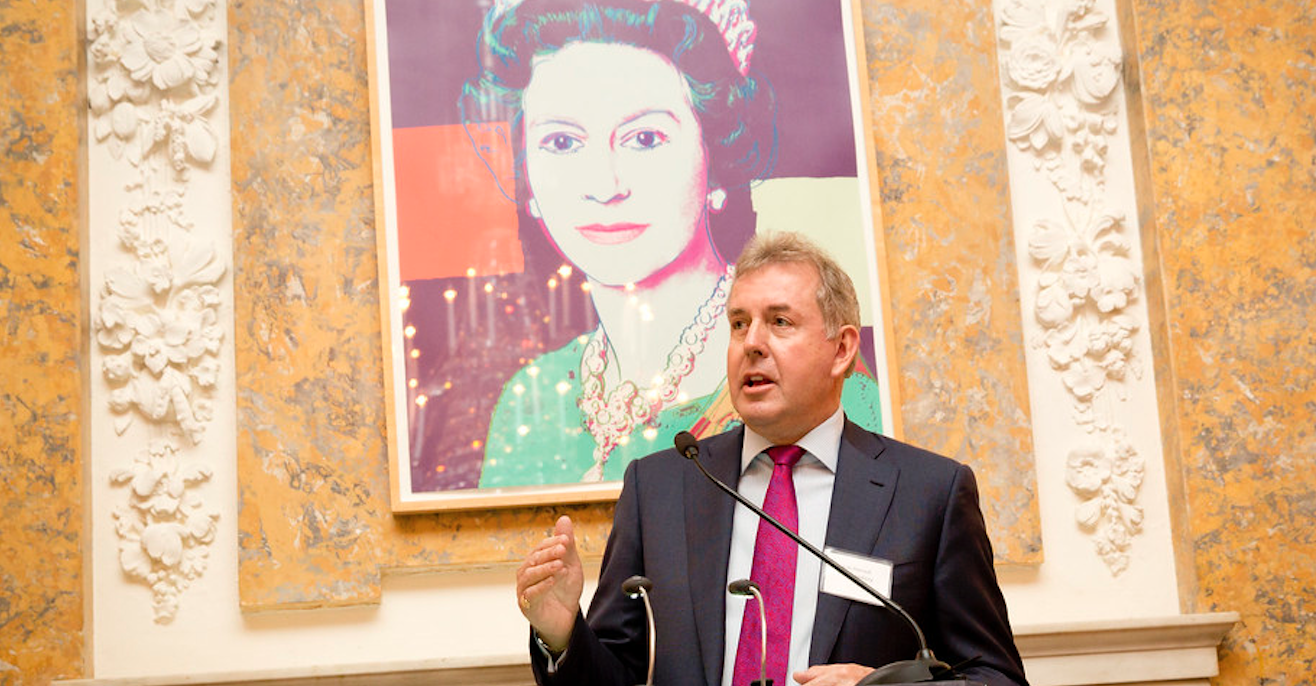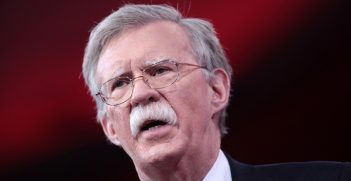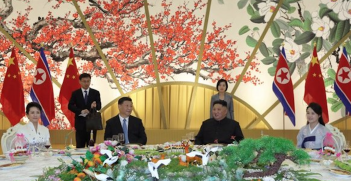Boris Johnson’s Reticence on UK Ambassador was Responsible and Mature

Johnson’s judicious refusal to be baited will give him the political space to begin repairing bruised relations with the White House and its tweet-prone cantankerous occupant.
Could Sir Kim Darroch have continued to function as the UK ambassador to the court of Donald Trump in Washington after the leak of his confidential cables to The Mail on Sunday? The answer is an unambiguous and unqualified no. This is so even though he was doing what he is employed and trained to do, his observations about the administration are hardly revelatory, and his unflattering judgments about its policy substance and process are likely to be widely shared by the diplomatic community, political establishment and media analysts in Washington.
The attacks in the British media and by senior members of the Conservative Party on Boris Johnson’s refusal to support Sir Kim in the very public diplomatic row with President Donald Trump must be judged against this overriding consideration. This was in a TV debate on 9 July with Foreign Secretary Jeremy Hunt for the leadership of the Conservative Party and thus prime minister. Johnson was blamed for Sir Kim’s resignation the next day. Yet Johnson’s circumspection was entirely right and proper while Hunt’s repeated attempts to goad Johnson was deeply irresponsible as a cynical ploy to trip the frontrunner. By his willingness to risk inflicting grave damage on Britain’s most important foreign relationship, Hunt disqualified himself from Britain’s highest political office.
Assessments of countries in which diplomats are posted is an essential component of their job description. Part of the previous WikiLeaks disclosures included US diplomatic cables to the State Department reporting on the state of host country politics. Many of those cables were impressively sharp and astute and also showcased the occasional literary flair of some of the authors. Embassies would be guilty of a dereliction of duty if they failed to report negative aspects of the host country’s politics and society. For them to continue providing assessments that are useful, the reports have to be full, free and frank. For such communications to be feasible, they must remain confidential.
The problem with Sir Kim’s cables was not, therefore, their content, but the leak to the press. For this, it is clear that anyone but Sir Kim bears responsibility. Regardless, once it had happened, his position became untenable. He could no longer perform his duties as ambassador in Washington and he was right to resign sooner rather than later.
Trump is famously temperamental and notoriously thin-skinned. His publicly stated response of refusing any further contact and cooperation with Sir Kim — an action without precedent in Britain’s dealings with friendly governments — was petulant but predictable. Because these are well-known presidential character traits, after the Darroch cables were leaked, Hunt should have moved swiftly on four fronts to contain the damage and minimise the fallout as his most urgent priority.
First, he should have telephoned Sir Kim and told him that the ambassador retained the full confidence of the minister and the government. But as the leak made it impossible for Sir Kim to do his job in Washington, Hunt should have asked him which post would he like to be transferred to, appropriate to his seniority. Second, Hunt should have said publicly that Sir Kim’s new post was proof of the government’s continuing confidence in his professionalism. Third, he should have communicated publicly and confidentially to the adults in the Trump administration that Sir Kim was only doing his proper job, the government was free to reject his assessments and recommendations as it saw fit, and the problem was the leak, not the cables. Fourth, he should have ordered an urgent investigation into the leaks and rebuked or punished the leaker appropriately. On 12 July London police did launch a criminal investigation into the leak.
What Hunt should not have done is to engage in chest-thumping megaphone diplomacy in a public demonstration of virility in standing up to Trump. Britain is an important US ally but Washington is critical and indispensable for British interests. That is the brutal reality of the unequal bilateral relationship. To demand — nay, to insist repeatedly — in a nationally televised debate, that Johnson back Sir Kim and commit to keeping him in the post was deeply irresponsible.
Hunt made a promise he could not possibly have kept: to leave Sir Kim in Washington until his tenure was completed around Christmas. Hunt did this solely to discomfit Johnson whom he trails badly in the leadership contest. If by some miracle Hunt wins the ballot, he would have had to reverse the decision. This would have added to growing public cynicism about promises made by politicians to win power, only to be broken once they are in power.
Johnson handled the taunts and the pressure with composure and responsibility in refusing to be baited. Instead he rightly criticised the attempt to drag civil servants into the hurly-burly of domestic, intraparty politics. Besides, not being in the cabinet, he does not have access to all the facts. In contrast, Hunt is the minister in charge of foreign policy. What sort of PM would Johnson be if he was prepared to jeopardise Britain’s most consequential relationship for the sake of a lame duck ambassador, based on ignorance of all the facts, just to score debating points?
Assuming Johnson is prime minister by the end of the month, had he taken the bait, he would have begun his tenure with badly damaged relations with the US president. Instead, Johnson’s judicious reticence will ensure he has the necessary political space to begin repairing the bruised relations with the White House and its tweet-prone cantankerous occupant.
Professor Ramesh Thakur FAIIA is an emeritus professor at the Australian National University. A former UN assistant secretary-general, he is co-editor of The Oxford Handbook of Modern Diplomacy.
This article is published under a Creative Commons Licence and may be republished with attribution.





